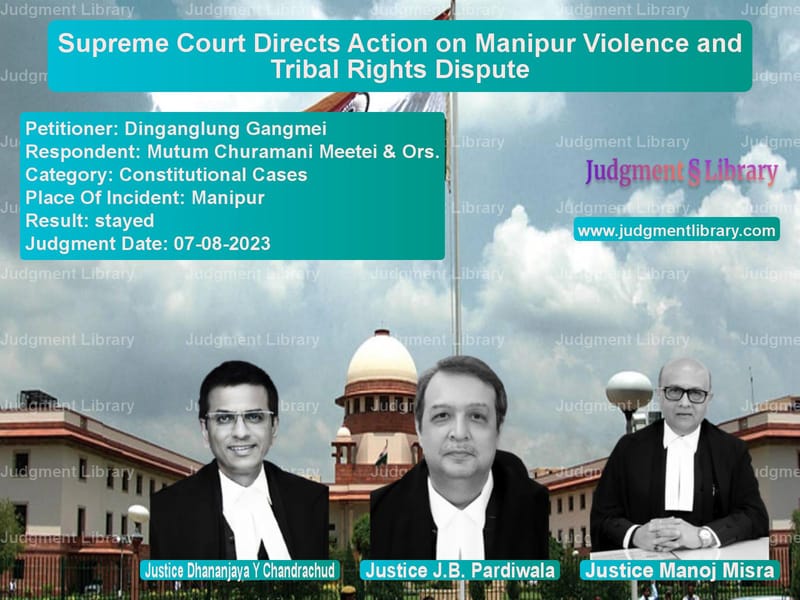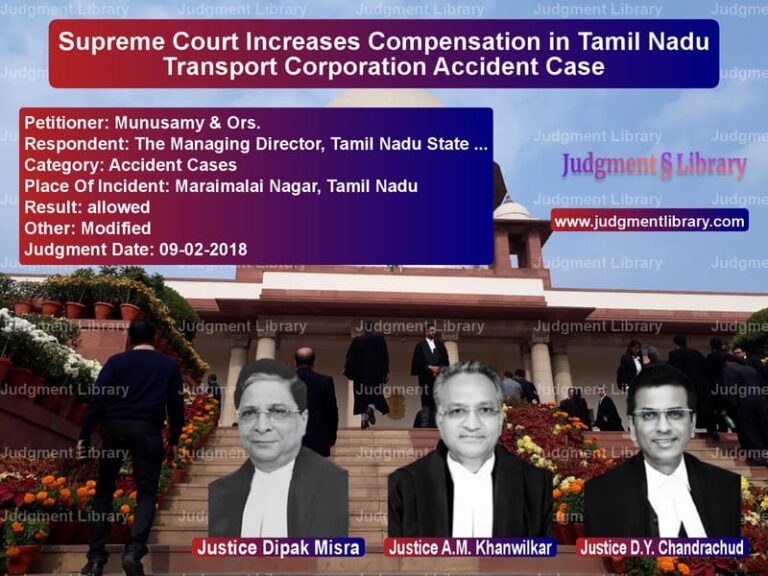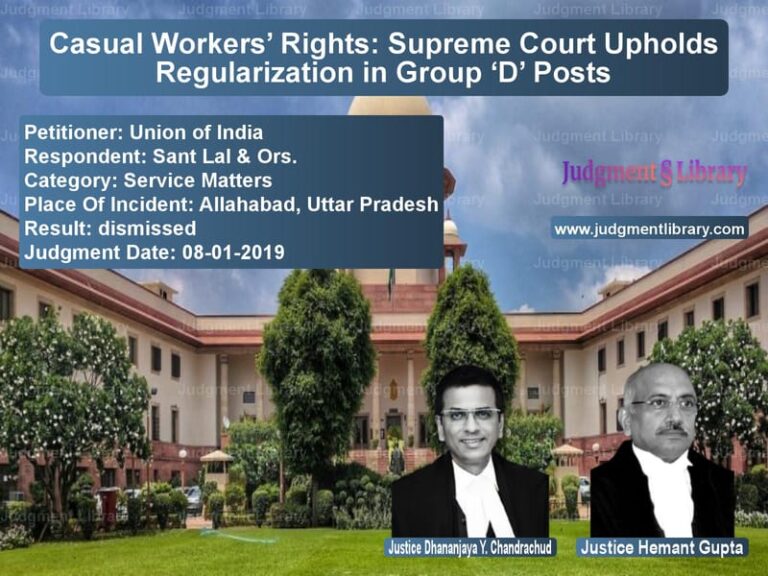Supreme Court Directs Action on Manipur Violence and Tribal Rights Dispute
The Supreme Court of India recently delivered a landmark ruling in the case of Dinganglung Gangmei vs. Mutum Churamani Meetei & Ors., addressing the ongoing sectarian violence in Manipur. The case stemmed from the Manipur High Court’s directive to the state government to recommend the inclusion of the Meitei community in the Scheduled Tribes list. This order triggered large-scale violence and protests, leading to multiple legal challenges and demands for intervention.
Background of the Case
Manipur has been witnessing ethnic clashes since early May 2023, primarily between the Meitei and tribal communities. The root cause of the unrest was the High Court’s directive dated March 27, 2023, which asked the Manipur government to respond to a pending 2013 request regarding the Meitei community’s inclusion in the Scheduled Tribes list.
The key events leading to the Supreme Court’s intervention were:
- March 27, 2023: The Manipur High Court directed the state government to consider the Meitei community’s request for Scheduled Tribe status.
- May 3, 2023: Large-scale violence erupted across Manipur following the High Court’s order.
- May 8, 2023: The Union Government reported deploying 52 Central Armed Police Force (CAPF) companies and 105 Army/Assam Rifles columns to control the situation.
- May 17, 2023: The Manipur government submitted a status report detailing relief and security measures.
- July 20, 2023: Shocking media reports surfaced showing sexual violence against women, prompting urgent intervention by the Supreme Court.
- August 7, 2023: The Supreme Court issued a comprehensive ruling addressing the legal, humanitarian, and security aspects of the crisis.
Key Legal Issues Considered
The Supreme Court examined the following issues:
- Whether the High Court had jurisdiction to direct the state government to recommend the inclusion of the Meitei community in the Scheduled Tribes list.
- Whether the ongoing violence and human rights violations required Supreme Court intervention.
- Whether investigative and security measures taken by the Manipur and Union governments were adequate.
Arguments by the Petitioner
The petitioner, Dinganglung Gangmei, contended:
- The High Court’s order violated constitutional provisions by overstepping its jurisdiction under Article 226.
- The directive led to severe sectarian violence and loss of life.
- Immediate Supreme Court intervention was necessary to restore law and order.
Arguments by the Respondents
The respondents, including Meitei representatives, argued:
- The demand for Scheduled Tribe status was long-pending and legitimate.
- The violence was politically motivated and should not impact legal decisions.
- The Supreme Court should allow the High Court’s directive to be implemented.
Supreme Court’s Analysis and Judgment
1. High Court’s Jurisdiction
The Supreme Court ruled that:
“The High Court exceeded its jurisdiction by directing the state to consider a matter that falls under the exclusive domain of the executive and legislative branches.”
2. Security and Law Enforcement
The Court noted the Union Government’s efforts but found them insufficient:
“The pace of investigation and security measures is unsatisfactory. The safety of all communities must be prioritized.”
3. Protection of Human Rights
The Court condemned reports of sexual violence and ordered immediate action:
“The use of women as instruments of violence is unacceptable in a constitutional democracy. The government must ensure swift justice.”
Supreme Court’s Final Decision
The Supreme Court issued the following directives:
- The Manipur High Court’s order was stayed.
- A Special Investigation Team (SIT) was formed to probe human rights violations.
- A three-member judicial committee led by Justice Gita Mittal was appointed to oversee relief and rehabilitation efforts.
- The Union Government was directed to deploy additional security forces and expedite investigations.
Conclusion
This ruling reinforces key legal principles:
- Judicial overreach must be avoided: Courts should not interfere in executive and legislative matters.
- Security and human rights must be safeguarded: Governments are responsible for maintaining law and order.
- Independent oversight ensures justice: Special committees and investigative teams are essential for fair outcomes.
This judgment is a crucial step in addressing the Manipur crisis while ensuring legal and constitutional boundaries are maintained.
Petitioner Name: Dinganglung Gangmei.Respondent Name: Mutum Churamani Meetei & Ors..Judgment By: Justice Dhananjaya Y Chandrachud, Justice J.B. Pardiwala, Justice Manoj Misra.Place Of Incident: Manipur.Judgment Date: 07-08-2023.
Don’t miss out on the full details! Download the complete judgment in PDF format below and gain valuable insights instantly!
Download Judgment: dinganglung-gangmei-vs-mutum-churamani-meet-supreme-court-of-india-judgment-dated-07-08-2023.pdf
Directly Download Judgment: Directly download this Judgment
See all petitions in Fundamental Rights
See all petitions in Constitution Interpretation
See all petitions in Public Interest Litigation
See all petitions in Judgment by Dhananjaya Y Chandrachud
See all petitions in Judgment by J.B. Pardiwala
See all petitions in Judgment by Manoj Misra
See all petitions in Stayed
See all petitions in supreme court of India judgments August 2023
See all petitions in 2023 judgments
See all posts in Constitutional Cases Category
See all allowed petitions in Constitutional Cases Category
See all Dismissed petitions in Constitutional Cases Category
See all partially allowed petitions in Constitutional Cases Category







